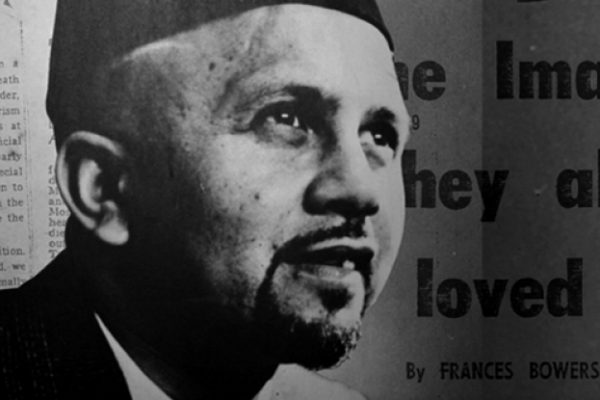Not only is Mirza’s role as the head of the race inequality commission highly problematic because of her history, but it also shows a complete lack of understanding and seriousness on the part of the current UK government to really tackle systematic racism – and begs the question of whether the UK is really willing to look into its own deeply problematic and racist past.
Not only is Mirza’s role as the head of the race inequality commission highly problematic because of her history, but it also shows a complete lack of understanding and seriousness on the part of the current UK government to really tackle systematic racism – and begs the question of whether the UK is really willing to look into its own deeply problematic and racist past.
Prime Minister Boris Johnson has only recently appointed Munira Mirza to head up the UK Race and Inequality Commission – having been created in the wake of the Black Lives Matter movement. Despite also being an advisor to Johnson as Head of the No.10 policy unit, Mirza’s own history of troubling personal views does not make her the right candidate and is already making a mockery of what the unit is aiming to achieve.
Born in Oldham, Greater Manchester to parents of Pakistani Muslim origin, from 2008 to 2016 she worked as Cultural Advisor, and Director of Arts, Culture, and the Creative Industries. From 2012, Mirza was appointed as Deputy Mayor for Education and Culture when Johnson was Mayor of London. She is married to Dougie Smith who also works as an adviser and opposition strategist.
During a 2014 interview with Total Politics Mirza said: “We live in a multicultural city on one level – there are lots of people here from all over. That’s a good thing and we should celebrate it. But what I think politicians and policymakers shouldn’t do is assume that they know a community, or that a community has a fixed view of things – communities themselves are quite diverse internally.” Despite this statement, she has contradicted herself on numerous occasions by making assumptions about Islam and race – highlighting the hugely problematic issue of her being the current Race Advisor.
Mirza believes institutional racism is a myth, that diversity is divisive, and supports Islamophobic comments. Over the past several years, she has openly written many blogs, attended seminars, and taken part in media interviews raising her public profile of someone that is unsympathetic to those discriminated against because of their race and religion.
Munira Mirza is a racial gatekeeper.
In 2018, Mirza defended Boris Johnson’s article that compared Muslim women who wear burqas to “letterboxes and bank robbers” – she argued that Johnson was “treating Muslims as equals.” She also referred to the burqa as a “symbol of gender inequality.” This follows on from her previous comments in 2017 about the hijab in which she stated: “I find it bizarre that any woman who lives in the West would choose to hide herself like that without coercion and even more bizarre to claim it’s an act of feminism.”
Mirza has completely ignored the fact that many women willingly choose to wear the hijab and her lack of understanding about freedom of choice which exists in the UK Muslim community is worrying, to say the least.
She has also defended Boris Johnson calling black kids ‘picanninies’. In this clip from 2011, she has the audacity to gaslight a black man’s experience of racism and also defends racists:
New: I found a video from 2011 where Boris Johnson’s racial inequalities commission appointee Munira Mirza can be seen lecturing Black men about the N Word and defending the Boris article where he called Black people “piccaninnies” with "watermelon smiles" 1/2 pic.twitter.com/YvrDSEpkuB
— Iggy Ostanin (@magnitsky) June 22, 2020
When Shadow Justice Secretary David Lammy accused Boris Johnson of “trying to wage a culture war” after Lammy’s own review into inequality in the justice system had been attacked by Mirza, Mirza criticised Lammy’s review into the criminal justice system. She believes people from BAME backgrounds have “more favourable treatment compared with whites” and she said it “exaggerated the problem of racism”.
The Institute of Race Relations has also expressed their concern into Mirza’s recent appointment: “Any enquiry into inequality has to acknowledge structural and systemic factors…Munira Mirza’s previous comments describe a ‘grievance culture’ within the anti-racist field and she has previously argued that institutional racism is ‘a perception more than a reality.’ It is difficult to have any confidence in policy recommendations from someone who denies the existence of the very structures that produce the social inequalities experienced by black communities.”
Mirza has also criticised Theresa May’s 2017 race audit in an article for The Spectator, stating that “constant talking about institutional racism and racial bias and unfair treatment is stoking grievance and deterring ethnic minorities from engaging with public services.” Mirza believes that society should avoid talking about racism, which is ironic when the latest initiative needs to investigate such prejudices.
Mirza used to be a member of the Revolutionary Communist Party (RCP), which ceased to exist in 1997. The party voiced their abhorrent opinions in a journal called Living Marxism, which including questioning the genocides in Rwanda and Bosnia. After being sued for libel by ITN they rebranded as an online magazine called Spiked. Spiked has published articles on the #MeToo movement and Black Lives Matter, and have also previously defended racist and Islamophobe Katie Hopkins. Mirza wrote articles for Spiked titled “Stop pandering to Muslims” and “Diversity is divisive”, arguing that “racism is clearly in decline”.
In 2018, she said that anti-racism aggravates her because “it’s essentially telling people that your general instinct to treat everybody equally is wrong – there’s something wrong with that and you have to think before you speak.” She believes it’s a form of policing, which shames people into silence. Mirza misses the whole point of anti-racism, which seeks to promote racial tolerance and equality, and completely misunderstands the fact that if a person is being shamed into silence because of racist views, then that’s not a bad thing as she so claims.
Not only is Mirza’s role as the head of the race inequality commission highly problematic because of her history, but it also shows a complete lack of understanding and seriousness on the part of the current UK government to really tackle systematic racism – and begs the question of whether the UK is really willing to look into its own deeply problematic and racist past.





